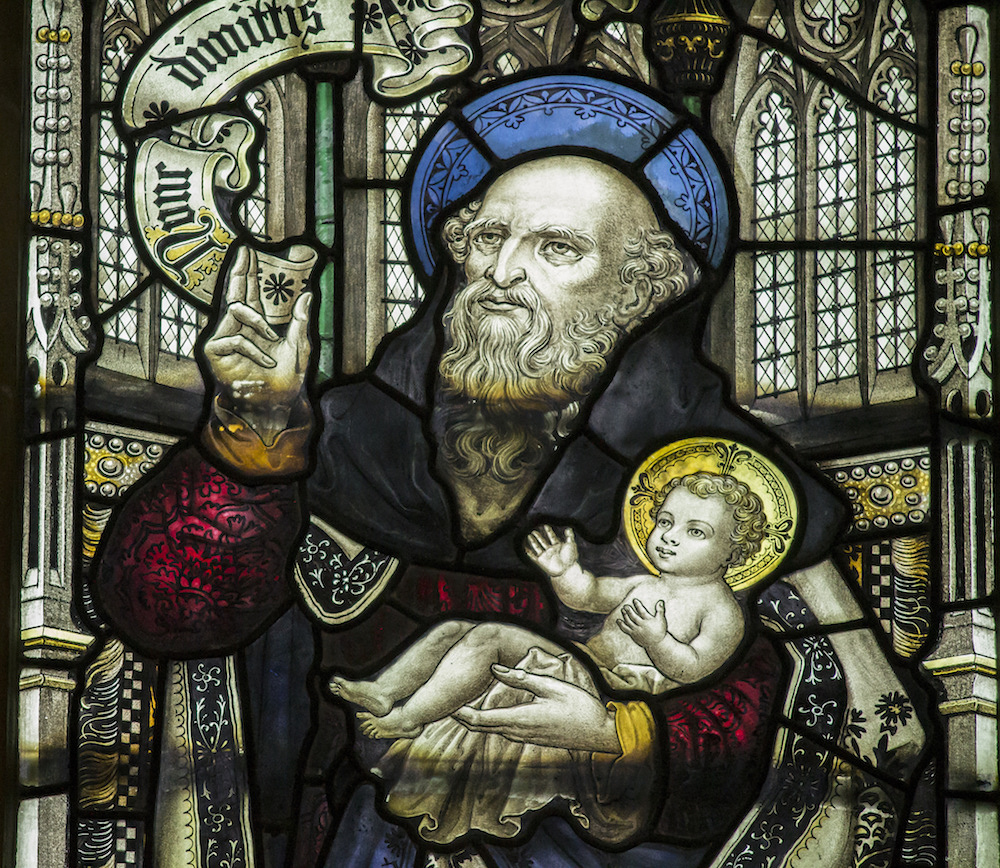
Bedtime went awry for no very good reason. I was done after a long day. Or: I decided it was a long day, and absolved myself from using kind words and polite questions. As my kids pulled on pajamas and brush teeth, I found myself yelling at someone taking too long to brush their teeth.
Both children asleep and still, I went into my bedroom to quiet my simmering impatience. Settling onto my bed with a pillow at my back, I pulled over the Book of Common Prayer and opened to the devotions for the close of day.
I read the prayers every night. I knew what was coming, and my chest clenched. I hate saying words I can’t live up to. That night, the disconnect was a heavy black underline.
I read the words out loud:
Lord, you now have set your servant free
to go in peace as you have promised.
for these eyes of mine have seen the Savior,
whom you have prepared for all the world to see.
It’s the Song of Simeon, taken from Luke 2. One of the less-familiar Nativity stories, it takes place when the infant Jesus is brought to the temple. Simeon, a prophet that God promised would see the Messiah before he died, comes across the family and praises God.
But as I said them, I thought: Where is my peace? Where is my freedom? Have I seen the Savior today, or closed my eyes to Him? On nights like this Jesus seems hazy and far away, even though his commands are plain: Go and do likewise. Do unto others. Take up your cross.
Simeon’s affirmation needled me. The words tasted of failure.
I know I’m unworthy. But there’s an unworthiness that reaches up to Jesus to be pulled out of the water, and unworthiness that sinks to the bottom of the lake.
The song made me sink.
It’s a pattern I see over and over in my faith, in my pursuit of spiritual disciplines, in my reaching out to God. Sometimes my brokenness brings me to him. Sometimes it does the opposite.
Why does knowledge of my sickness send me running from the one who could heal me?
I read Simeon’s words again because I sensed I needed to be obedient. I needed to say them and ache for healing.
I have seen the Savior, I said. I have seen the Savior.
Here’s what my heart echoed back as I spoke Simeon’s song aloud:
The prophet speaks words before they are true. She is incarnating the possibility. But she lets God do the work of bringing into being.
It is hard for me to believe this no matter how much I know it: God is doing the work for me.
God provides peace when I am past the point of feigning it. God opens the jail doors when I am despairing my captivity. The Savior is, as St. Patrick said, under me, over me, through me, around me, and beside me even when I am blind to His presence.
And what of this peace that Simeon celebrates? It is not the kind we’d see in a soft-focus catalog. I’ve been reading Luke 2 more closely, and seeing this:
Simeon is waiting to die. T.S. Eliot writes that his life is like a feather on the back of a hand, waiting for a breeze to blow it away.
The blessing he gives Mary and Joseph is an unsettling one: their son will cause upheaval. People will speak against him.
And for them: souls pierced by swords.
I imagine them tasting that oddly bittersweet blessing with babe in arms and wondering, again, what they have gotten themselves into.
Here is the truth: my children often pierce my soul. So does my behavior towards them. Reaching out to the Savior who is hazy and clear pierces me, God pierces me, over and over.
It is because I am pierced that I am looking for Him in the first place.
The peace I am given is just right for this complicated world, just right for a mixed-up, broken heart. A heart that waits for God to give the peace, provide the freedom, and make the words come true.
I have seen the Savior, I declare. I am free to go in peace as you have promised.
Originally published over at Anita Mathias’ site.














